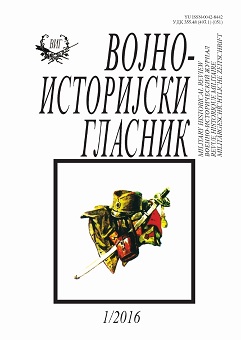Проблеми на југословенско-албанској граници 1929–1941.
Problems at the Yugoslavian-Albanian Border, 1929–1941
Author(s): Božica Slavković MirićSubject(s): Political history, International relations/trade, Criminology, Interwar Period (1920 - 1939), Geopolitics, Peace and Conflict Studies
Published by: Institut za strategijska istraživanja
Keywords: Albania; borders; immigrants; Yugoslavia; Kacaci; Kosovo and Metohija; outlaws;
Summary/Abstract: The Yugoslav government hired Albanian mercenaries and emigrants to stabilize the troubled border with Albania. Individuals who collaborated with the Yugoslav authorities were criminals, who used the situation to carry out their jobs, and anti-Yugoslav Albanian agents. The big problem was represented by frequent incursions of outlaws across the Yugoslav-Albanian border, robbing and smuggling weapons. The Yugoslav authorities only partially solved this problem in 1924, and because of the tribal solidarity of Kosovo Albanians and the power of idea of a Greater Albania, Albanian irredentism erupted during the period before World War II. Groups of ”kačaks” actively operated their shares from the beginning 1930 with the support of Italy. Almost every day thereafter, illegal border crossings and frequent clashes with the Yugoslav gеndarmeriе took place. It was necessary to solve the issue of regulating the border zone, as well as its provision by the divisional border areas.
Journal: Vojnoistorijski glasnik
- Issue Year: 2016
- Issue No: 1
- Page Range: 67-91
- Page Count: 25
- Language: Serbian

